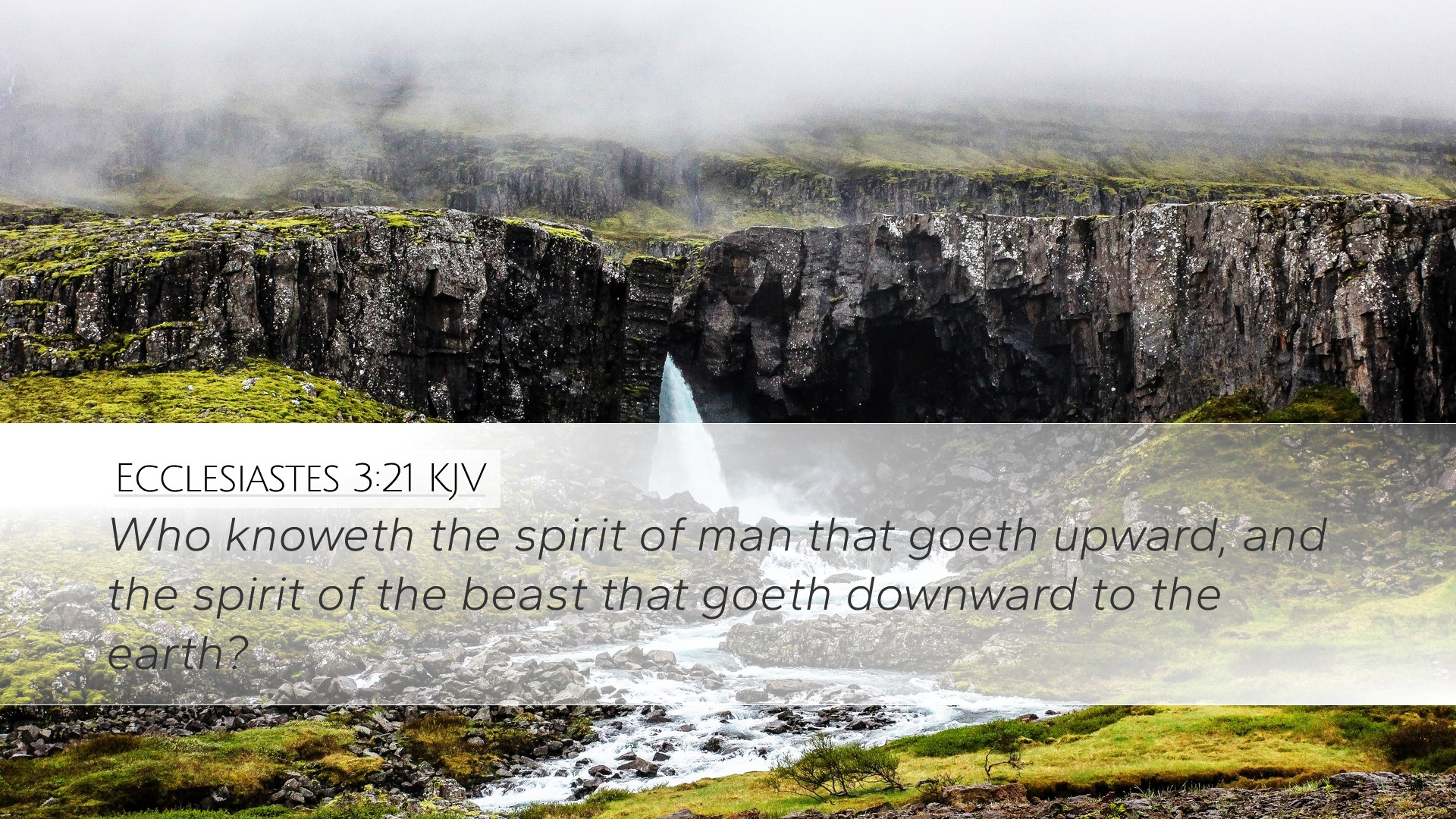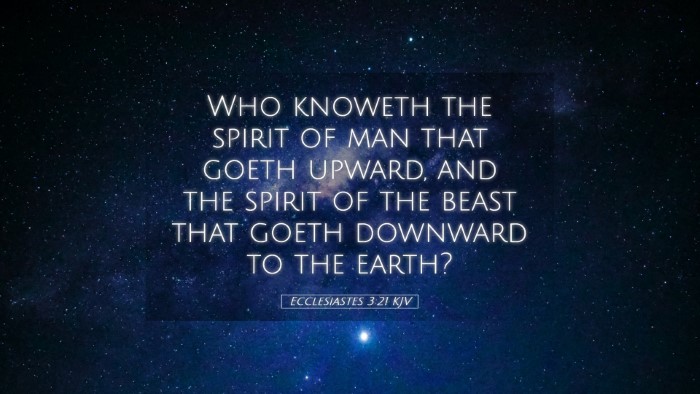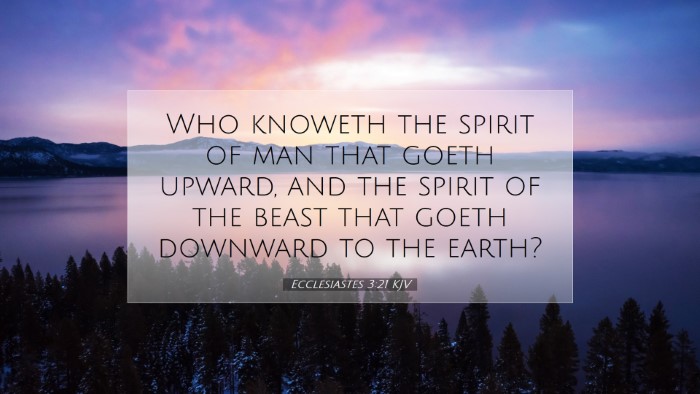Commentary on Ecclesiastes 3:21
Verse Analysis: Ecclesiastes 3:21 states, "Who knows if the spirit of the sons of men goes upward, and the spirit of the beast goes downward to the earth?" This verse reflects upon the nature of humanity compared to animal creation, particularly in the context of life, death, and the afterlife.
Contextual Overview
The Book of Ecclesiastes presents a philosophical exploration of life and its meaning, often contrasting wisdom with folly, joy with sorrow, and the transient nature of existence. Chapter 3 focuses on times and seasons, showcasing the cyclical nature of life and God's sovereign control over it. Verse 21 poses profound questions about the afterlife and the distinction between human and animal existence, provoking deeper theological reflection.
Theological Insights
Humanity's Distinctiveness: The verse highlights an existential inquiry regarding the spirit of man and animals. Matthew Henry emphasizes the unique position of humans as created in the image of God, suggesting that humans possess an inherent spiritual essence that distinguishes them from beasts. He invites readers to contemplate the implications of mortality and the eternal aspect of the soul.
Spirit and Existence: Albert Barnes explores the different destinies of human and animal spirits. He theorizes that while the spirit of beasts returns to the earth, human spirits ascend, reflecting the biblical principle that humans are ultimately accountable to God. Barnes argues that this verse draws attention to the mystery of the afterlife—something that is not fully disclosed in Scripture, encouraging humility in our understanding of divine matters.
Philosophical Implications
Adam Clarke elaborates on the philosophical ramifications of the verse, questioning the function and destiny of the spirit. He asserts that the pursuit of comprehension regarding the afterlife is universal among all peoples and cultures. Clarke underscores that while animals may possess a life force, it is the rational soul of humanity that connects to the divine and seeks eternal truths.
Practical Applications
For pastors, students, and theologians, this verse serves as a pivotal reminder to engage with the profound mysteries of life and death. Consider the following:
- Preaching on Hope: When expounding this passage, emphasize the hope found in Christ regarding eternal life. Encourage congregations to understand their eternal destinies rather than merely earthly concerns.
- Encouraging Reflection: Lead discussions on the nature of the soul and its implications for ethics and behavior in life. Highlight the influence of a worldview that recognizes the unique spiritual nature of humanity.
- Developing Wisdom: Foster a sense of wonder about God's creation and His plan. Remind believers that while life can often seem meaningless, faith can provide purpose and direction.
Conclusion
Ecclesiastes 3:21 encapsulates the tension between the known and the unknown in the human experience. The verse not only contains a poignant distinction between humanity and animals but also invites a deeper exploration into the mysteries of existence. Through careful study and reflection, this passage challenges each believer to seek understanding of their place in creation and the hope they possess in God's eternal promise.
In synthesizing insights from Matthew Henry, Albert Barnes, and Adam Clarke, we see a multifaceted exploration that transcends mere academic examination, addressing the spiritual realities that lie at the heart of Christian doctrine. May this verse inspire continued inquiry and fervent faith in the hearts of all who study it.


